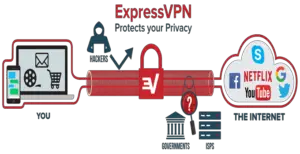
How to Prevent DNS Leaks When Using a VPN
VPNs encrypt your connection and help you access content that may not be available in your country, but that doesn’t mean they’re foolproof. In fact, there are plenty of instances where people may think they’re browsing on an encrypted VPN network while their information is unknowingly being leaked. DNS, or domain name system, is the internet’s way of connecting one site to another; it’s how web servers translate domain names into unique numerical addresses.
Usually, your ISP performs your DNS (meaning your internet provider can see which sites you’re visiting and for how long), but when you use a VPN, you can spoof your ISP by sending your web traffic through an encrypted tunnel.
At least, that’s how it’s supposed to work.
Pulling the plug on random DNS leaks
Most VPNs offer their own form of DNS leak protection. By bypassing your network information through their own VPN tunnels, you can browse the web without worrying about people being able to see what you’re doing online. Unfortunately, leaks can sometimes occur. More often than not, DNS leaks occur in one of two ways:
- Your VPN is not set up correctly
- Your network is compromised (if you’re browsing on public Wi-Fi, this risk increases significantly)
Knowing when (and when not to) manually configure your VPN
On their own, VPNs are usually fairly easy to use—you open the app, connect to the server location of your choice, and browse anonymously. Unfortunately, one of the biggest causes of rogue DNS leaks happens when VPNs aren’t properly set up.
By customizing your VPN settings, you sometimes run the risk of bypassing your VPN’s own DNS settings for another system. While this type of DNS leak is rare, it’s more common on Windows machines, as newer Windows operating systems have built-in settings that often conflict with your VPN’s own privacy protocols.
Being extra secure on public wifi
While it’s true that a VPN helps secure non-secure networks, you still run the risk of exposure when browsing on public wifi. Open hotspots like those found at coffee shops and airports usually have little or no privacy settings, and in some cases, hackers can actually spoof connected devices to send DNS traffic outside a user’s VPN network.
ExpressVPN, one of the leading VPN services, offers a great way to check if your DNS is leaking sensitive information. Simply connect to your VPN and open the page to see if your network is protected.
Checking your VPN every few days is a good rule of thumb, especially when you find yourself using public networks.
Keeping your information safe
While VPNs are a useful privacy tool, it’s important to not rely on them as the be-all-end-all when it comes to protecting your online data. Make sure to check to see if your DNS information is leaking periodically. If so, contact your VPN service immediately.




